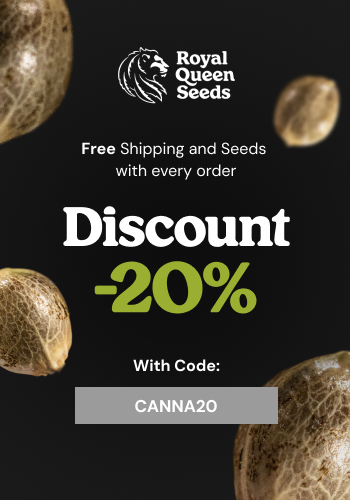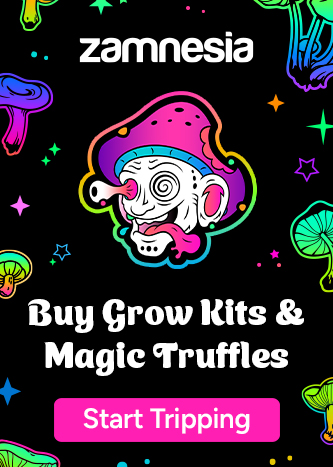How to talk to loved ones about cannabis

Whether you use cannabis for medical or recreational purposes, talking to your loved ones about it can be quite intense. Luckily we have some tips for you!
The time has come. You’ve decided to talk with your loved ones about your cannabis use. However, whether it is for recreational or medicinal purposes, the stigma still surrounding cannabis might make you nervous to disclose your 420 endeavors. It’s ok, breathe; the world is not going to collapse.
Having the talk with your loved ones about your marijuana use can get super awkward. Luckily, we've got the tips for you. Although each person's experience will vary considerably, there are some useful pieces of advice that might help you achieve a constructive dialogue with friends and family.
We need to address that not every case is the same. Each person has a unique relationship with their family members, friends, and themselves.
ONE-ON-ONE OR GROUP CONVERSATION
First, decide if a one-on-one or a group conversation is the way to go. The upside of having a one-to-one is that we people behave differently in groups. We are more open-minded about taboo topics when we're alone with another person.
Of course, the person to whom you wish to disclose your cannabis use might be super uptight. Maybe it’s best to have your best friend or family member by your side while sharing this information. It's your call.
DON’T GET DEFENSIVE

It’s important to stay calm and not get defensive. Your loved ones might have strong opinions about marijuana. It’s your mission to show them that your cannabis use doesn’t make you a “bad” person. If you want your loved ones to be open-minded about your habits, you need to be open-minded about their opinion as well.
Remember, if they aren’t used to meeting people who consume marijuana, you’re representing yourself as part of the entire community at large.
DIFFERENT LIFESTYLES
There's a great deal of diversity among cannabis consumers. One could be a “Cheech & Chong” stereotype. One could also be a perfectly functional marijuana consumer. If you start a conversation about the positive effects of marijuana, but you’re quite dysfunctional while consuming it, that’s something you should consider before pleading your case.
If you have a problem with toking too much ganja, you should address that and get help from your loved ones. If you’re an upstanding ganja-toking citizen, go straight for the truth, which is that marijuana does not negatively impact your ability to function and thrive.
MARIJUANA LAWS
Some blogs and articles may tell you to simply open up about your marijuana use. It sounds like an amazing idea, although there are certain realities one must face. It’s imperative to understand that marijuana is still harshly criminalized in some countries and jurisdictions around the world.
In the US, it's still a federally illegal Schedule I drug, the most illicit there is. If you live in a region where cannabis is still highly taboo, you should evaluate the potential repercussions of having others find out about your consumption. In areas where cultivation is illegal, you don’t necessarily need to go blabbing on about your pot plants, as this could lead to worse punishments than simply consuming.
UNDERSTAND THE BACKGROUND OF THE CONVERSATION
Now that we’ve covered the essential aspects, understanding the history of skewed beliefs surrounding marijuana is important to build a strong case. The reason this article exists is because having an open dialogue about cannabis is still largely taboo. Despite generations of open cannabis use, 20th century prohibition has caused the substance to be continually stigmatized.
In 1937, the Marihuana Tax Act passed in the United States, making marijuana illegal, which escalated to the Single Convention on Narcotic Drugs in 1961, which made marijuana illegal on an international scale.
And then of course, there’s the 1970 Controlled Substances Act, in which cannabis was notoriously classed as Schedule I. It’s good to prepare yourself with this historical background to set a baseline for the contentious debate encircling the herb.
EDUCATE YOURSELF

You should educate yourself about marijuana before you even use it. With this knowledge in your arsenal, you can have an effective conversation with your loved ones. It's best to bring up the comparisons between cannabis and alcohol, because your loved ones live in a society where alcohol is socially accepted, even though it’s more dangerous than marijuana.
We recommend watching David Nutt’s lecture, which you can use as a reliable source. Then, make sure you have explanations behind why you use cannabis. Is it to alleviate back pain or to provide euphoria?
Even if you fall into the latter camp, you can still craft a compelling argument on how cannabis helps you relieve stress and depression without turning to more dangerous substances or medicines. Remember that your loved ones love you, and they care about your health. A dialogue is all about each party making their case and listening to the other.
ADDRESSING CHILDREN
If you have children or if children are involved, it adds an extra layer to consider. It's definitely a sensitive subject. You need to keep away any edibles that may look like candy or something that kids eat. You should also consider how your behavior while high may impact children. If you’re a responsible adult that can handle marijuana consumption and being around kids, prove it to your loved ones.
There are also special books for kids that can help to educate your children about cannabis.
KEEP IT COOL
Of course, telling a person about your marijuana consumption does not need to follow the classic narrative of disclosing something sensitive. That may be the best way of handling it, although there are great cultural differences in regards to how we communicate with each other.
Your loved ones might completely accept your marijuana use; heck, maybe they already knew about it and they're waiting for you to address it.
Remember to keep cool, and most importantly, be smart about your approach. May you have a smooth talk. Peace out.




